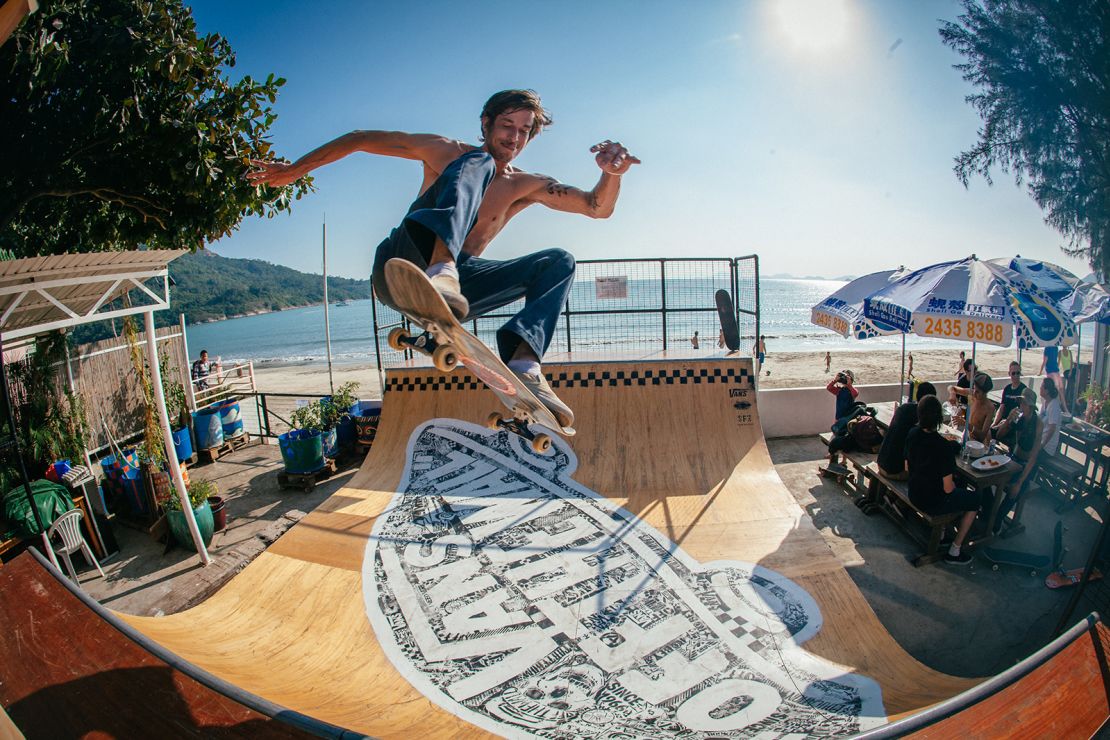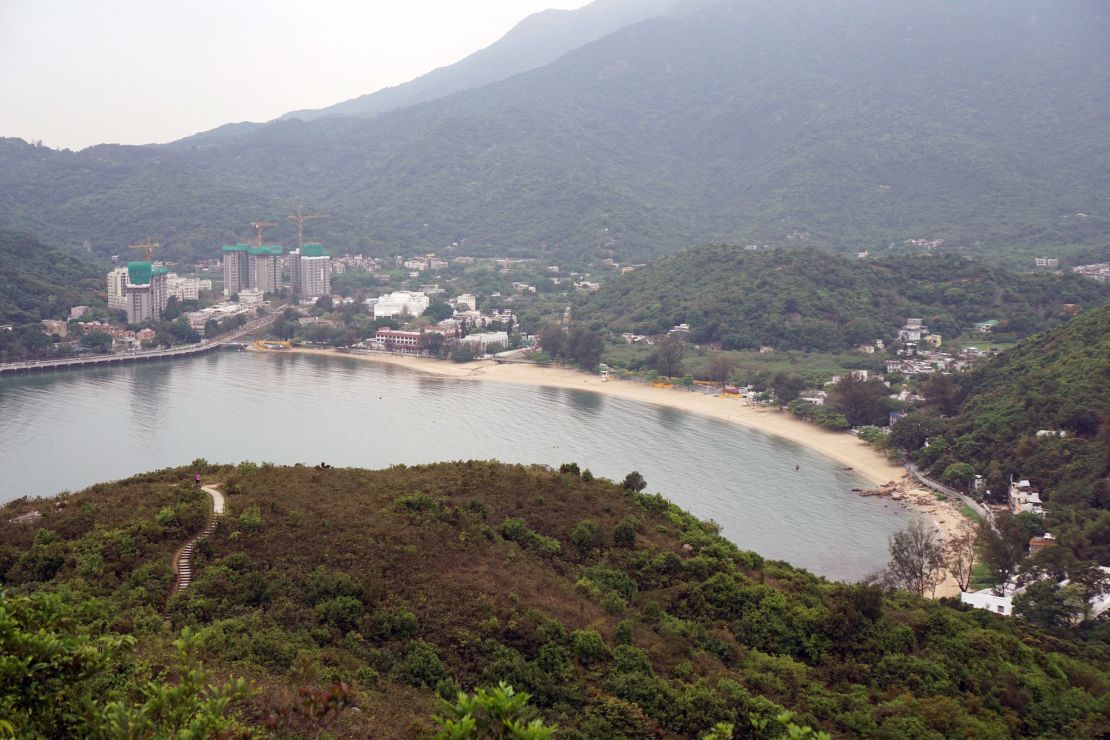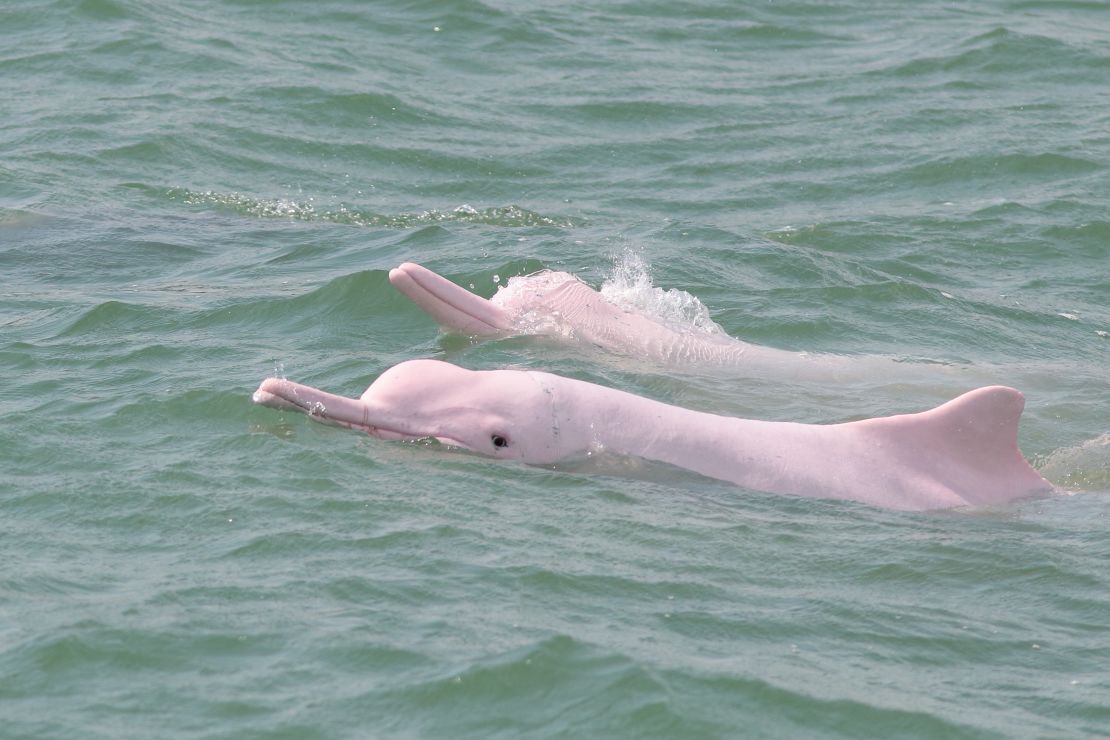Crossing a road on Hong Kong’s Lantau Island can sometimes be a challenge – but not because of the traffic.
Wild cows and water buffalo wander the streets, stopping to admire the views and soak up a ray of sun.
Yes, this is Hong Kong. But not the ultra-modern skyline and crowded streets travelers are used to.
Most tourists planning a trip to Lantau are headed to see the massive 112-foot-tall Tian Tan Buddha, also known as the Big Buddha, and Hong Kong Disneyland.
But, at nearly double the size of Hong Kong Island, Lantau is home to much more than a few big-ticket tourist attractions.
Dubbed “The Lungs of Hong Kong,” Lantau has mountainous terrain, long sandy stretches of coastline and the territory’s largest park, which covers nearly half the island.
Here, there are more cattle than cabs, with nearly 1,000 animals roaming the island, compared with 75 taxis.
It’s worth spending a weekend on Lantau Island to properly explore its secluded waterfalls, fishing villages, laid-back beaches and surf bars.
Hang loose

Sandwiched between mountains and paddy fields, Pui O beach sees a mix of sunbathers, surfers and the odd water buffalo or two.
On the southeast corner of Lantau, the shoreline has long been a draw for aspiring surfers thanks to its clear water and easy, although unreliable, breaks.
But even if you don’t plan to hit the waves, the local surf bar is worth a visit.
Opened in 2014, Mavericks quickly put Pui O on the map with its colorful interiors – picture surfboards lining the walls, low-key wooden high tops, an outdoor deck and even a mini skate ramp.
But the décor isn’t the only reason it’s won over the hearts of Hong Kongers. The versatile menu also makes use of fresh food sourced from local farmers.
It’s the kind of place where you can sip on a local craft brew alongside seared tuna, Thai-tamarind chicken wings, chilli cheese fries, and bangers and mash – a bit American, a bit British, a bit Asian, all delicious.
Mavericks, Pui O Beach, South Lantau Road, Lantau Island, Outlying Islands; +852 5662 8552
Go to town
Biking around Lantau is not only extremely convenient, but it also provides a more scenic way to explore the island.
Cyclists can stop and go as they please, riding through villages and trails, and explore hidden coves without having to wait for a bus or taxi.
On Lantau’s eastern coast, a few sleepy towns offer a different Hong Kong lifestyle, far from the rushed crowds and imposing towers of Central and Tsim Sha Tsui.
The town of Mui Wo moves at a much slower pace, with a relaxing waterfront promenade and bikes for rent from the Friendly Bike Shop.
For lunch, the Mui Wo Cooked Food Centre is home to several waterfront eateries that tend to specialize in seafood, including squid, prawns, scallops and more.
More ambitious bikers may be inclined to tackle the mountainous island loop. Starting from Mui Wo and tracing the South Lantau Road along the coastline, it climbs up to Ngong Ping Village and back around to the southeast beaches.
Friendly Bike Shop, Shop 5, 18A Mui Pier Ferry Pier Road, Mui Wo, Hong Kong; 2984 2278
Take a hike

As one of Hong Kong’s most beloved mountain paths, the Lantau Trail covers a loop of 43 miles, split into 12 easier-to-attack sections.
A relatively approachable option traces the coastline from Discovery Bay, in northeast Lantau, to Mui Wo.
The two-hour trail cuts through fishermen’s villages and forested paths, before winding up at the mountaintop Trappist Haven Monastery.
Along the way, dramatic views frame Cheung Chau and Peng Chau islands off the coast, the rolling hills behind, and Silvermine Beach below.
For more of a challenge, hikers might reckon with Lantau Peak, also known as Fung Wong Shan, the highest mountain on the island at 3,064 feet.
Best appreciated at sunrise, the hike usually begins in Ngong Ping – home to the Big Buddha – at the start of Stage 3 of the Lantau Trail.
From there, a three-mile trail will take travelers to the top of the Lantau Peak, affording views of Shek Pik Reservoir and Sunset Peak along the way.
Chase some waterfalls
Just a half-hour’s ferry ride or MTR trip from Hong Kong Island, Lantau is full of literal watering holes and a few idyllic waterfalls.
The easiest to reach are the Silvermine Waterfalls, accessed from the town of Mui Wo, in southeastern Lantau.
Starting from Mui Wo Rural Committee Road, a two-mile stroll up a softly sloping trail northwest from town takes travelers past local villages and beaches.
A trail marker leads the way to the falls, which also happens to be a popular picnic and barbecue spot.
A bit harder to find, the scenic Man Cheung Po Infinity Pool is hidden away on the opposite side of Lantau Island, near Tai O village.
The naturally occurring series of terraced waterfalls culminates in a pool that seems to spill off the mountain side.
Travelers can find their way to the pool starting from Tai O pier, following the coastal path for roughly a mile until reaching signs for the falls. From there, it’s another two hours uphill.
Even though it looks inviting, be careful not to dip even a toe: This pool is a source of fresh water for the island so swimmers can be fined if caught contaminating the supply.
Living history
Tucked away in the southwestern corner of Lantau Island, Tai O fishing village seems locked in the past.
The quiet town is full of brightly colored stilt houses, built above a matrix of waterways.
For centuries, the neighborhood has primarily been a home to fishermen but the trade has dwindled in the past few decades.
While the fishing industry has faded, salted fish and shrimp paste vendors still eke out a living with small stalls peppering the area.
On the western edge of the village, travelers will find a colonial white facade that stands in contrast to the humble surrounds.
A Grade II historic building, the Tai O Heritage Hotel sits atop a hill with views of the South China Sea.
Built in 1902, originally as a marine police patrol post to combat sea piracy, the colonial-era hotel has retained its former identity with historic details.
Century-old cannons and corner turrets stand at attention, while the nine rooms feature French windows, fireplaces and vintage furniture.
Tai O Heritage Hotel, Shek Tsai Po Street, Tai O, Lantau Island, Hong Kong; +852 2985 8383
Pitch a tent
Lantau has serious bragging rights when it comes to camping.
With several gorgeous campsites, travelers can relax in secluded woody surrounds or camp by less frequented beaches.
No tent? No problem. Hong Kong campsites require minimal gear, not to mention a few upscale options to make the experience more glamorous.
In Pui O, a public campsite offers easy access to the ocean, as well as barbecue pits, water buffalo sightings and hiking trails.
Right next to the site, there’s a convenient alternative for tentless travelers: Treasure Island.
This helpful enterprise provides tents, coolers, sleeping bags and barbecue equipment – even a s’mores kit should the need arise.
A more upscale option is Long Coast Seasports, about 10 minutes south by taxi in Lower Cheung Sha Village.
This outfit offers safari-like deluxe canvas tents, complete with mattresses, wooden floors, air-conditioning and lots of elbow room.
There’s a pool table and trampoline on site, as well as a handful of beachfront restaurants nearby.
Two of the most popular options are the Beach House with its Mediterranean menu and The Stoep, famous for South African fare and located in a charming garden setting.
Treasure Island, Pui O Beach, Lantau Island, Hong Kong; 2546 3543
Long Coast Seasports, 29 Lower Cheung Sha Village, Lantau Island, Hong Kong; +852 8104 6222
See the pink dolphins

Hong Kong’s famous pink dolphins – formally named Chinese White Dolphins – thrive off the north and west coast of Lantau, in the South China Sea and the adjacent Pearl River Estuary.
The dolphins are known for their off-white and bubblegum pink skin, which tends to grow rosier as they age.
While the dolphin populations have been quickly shrinking due to habitat destruction and marine traffic, it’s still possible – and actually quite likely – to see these playful animals while in Lantau.
In 2016, Eco Travel, a local eco-tourism company, started to provide interpretation services on tour boats in Tai O, with WWF-Hong Kong playing an advisory role.
The program works with village tour operators, promoting safe environmental practices and raising awareness about the animals’ status as a threatened species.
Check the bucket list
If you can’t leave Lantau without seeing one of the world’s largest Buddha statues, we won’t blame you.
The 111-foot-tall bronze Goliath draws crowds every day, mostly accessed by the Ngong Ping 360 Cable Car, which affords great views along the way.
But aside from the Big Buddha, there are a few other worthwhile sites on the Ngong Ping Plateau.
Just a short walk finds the century-old Po Lin Monastery, showcasing classical Chinese architecture across the various halls and shrines.
The monastery is famous for another reason: Buddhist vegetarian cuisine – mostly revolving around dumplings, noodles, vegetables, rice, tofu and popular mango rice dumplings for dessert.
Also worth seeking out is the Wisdom Path, a footpath that leads travelers around 38 wooden monuments arranged in a Figure-8 infinity pattern.
Each pillar features beautiful calligraphy, engraved with a verse from a Buddhist prayer, “Heart Sutra.”
Rarely crowded, the Wisdom Path offers a quiet corner for reflection in an otherwise touristy area – not to mention excellent views of the outlying islands.
Po Lin Monastery, Ngong Ping, Lantau Island, Hong Kong; +852 2985 5248
Kate Springer is a Hong Kong-based freelance journalist who covers food, travel, culture, architecture and innovation for CNN, Conde Nast Traveler, BBC Travel, Forbes Travel Guide, Fodor’s, Munchies and more. Follow along on Instagram and read more of her work here.



















